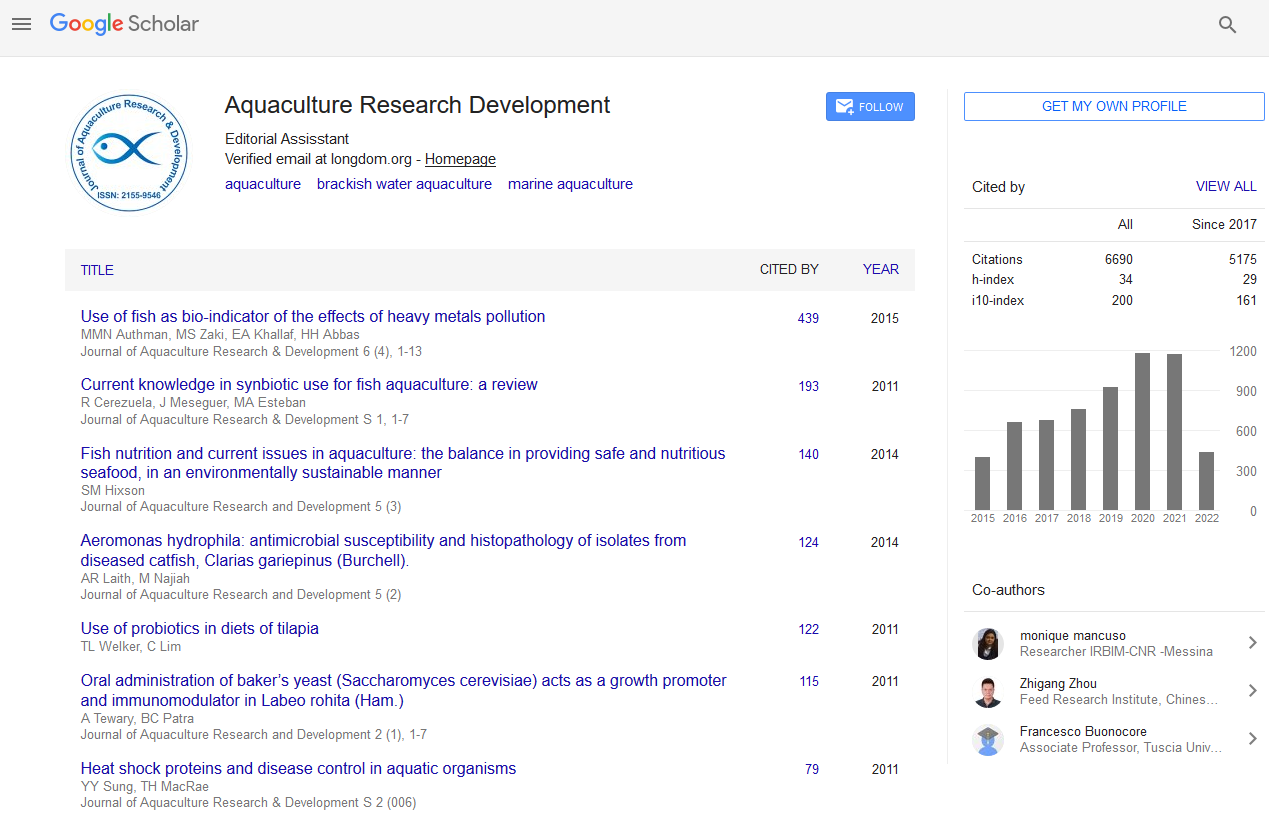PMC/PubMed Indexed Articles
Indexed In
- Online Access to Research in the Environment (OARE)
- Open J Gate
- Genamics JournalSeek
- JournalTOCs
- Scimago
- Ulrich's Periodicals Directory
- Access to Global Online Research in Agriculture (AGORA)
- Electronic Journals Library
- Centre for Agriculture and Biosciences International (CABI)
- RefSeek
- Directory of Research Journal Indexing (DRJI)
- Hamdard University
- EBSCO A-Z
- OCLC- WorldCat
- Scholarsteer
- SWB online catalog
- Virtual Library of Biology (vifabio)
- Publons
- MIAR
- University Grants Commission
- Euro Pub
- Google Scholar
Useful Links
Share This Page
Journal Flyer

Open Access Journals
- Agri and Aquaculture
- Biochemistry
- Bioinformatics & Systems Biology
- Business & Management
- Chemistry
- Clinical Sciences
- Engineering
- Food & Nutrition
- General Science
- Genetics & Molecular Biology
- Immunology & Microbiology
- Medical Sciences
- Neuroscience & Psychology
- Nursing & Health Care
- Pharmaceutical Sciences
Sustainable management of shrimp culture in the mangrove landscape
International Conference on Aquaculture & Fisheries
July 20-22, 2015 Brisbane, Australia
Roel H Bosma
Keynote: J Aquac Res Development
Abstract:
The expansion of shrimp aquaculture went often at the expense of mangrove forest. Following declines in productivity as a result of deteriorating quality of bottom and water and subsequent outbreaks of shrimp diseases, farmers either reverted to very extensive or to more intensive production systems. Some countries successfully controlled mangrove clearance after 1990 along the coastline but in example Indonesia the ponds extended up to the shores. In the process Philippine?s farmers developed the green-water system (GWS) which reduces disease impact and improves shrimp growth. After massive mangrove clearance trade-offs on fisheries and coastal protection became apparent. According to recent studies the Total Economic Value of intact mangrove is higher than the profits earned from intensive shrimp culture. Other studies show that mangrove?s nursery function can be well maintained, if the remaining areas of mangrove are well connected to the aquatic ecosystem and not fragmented. However, expanding the ponds up to the shores demonstrates to be detrimental for land accretion while sea level rises and land subsides due to example fresh water extraction. In many cases, the benefits of extensive systems are too small to repair dikes and pond infrastructures after abrasion. Through a modelling approach we demonstrate that the total benefits for society of a sound mix of aquaculture and mangrove are higher than from either full intact mangrove or a completely transformed landscape. Mixed mangrove shrimp systems can contribute to the societal benefit provided the on-farm mangrove is not in-pond mangrove, but connected to the surrounding aquatic system.
Biography :
Roel H Bosma obtained his MSc at Wageningen University and worked for close to 20 years in farming systems research in West Africa. In 2007 he defended his PhD based on fieldwork in Vietnam. Since 2004, he leads international collaborative research projects and supervises MSc and PhD from Wageningen University. The projects focus on SE Asia and sustainable aquaculture is management. Notwithstanding his focus on research for development, he has published more than 30 papers in reputed double refereed journals and over 20 in simple refereed journals and as book chapters or conference papers.


